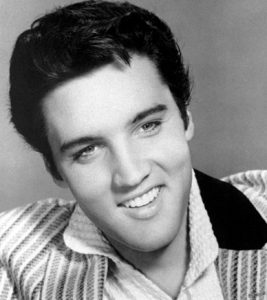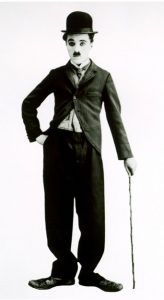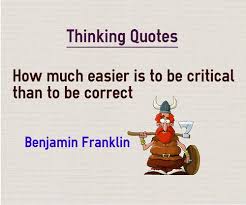Another Year of Choices
By Barbara Dahlgren

They say everyone has a “doppelganger,” an exact double, somewhere. Imagine it – a person who looks just like you.
When I was in line at a salad bar a few years ago, a man came beside me and asked if I liked my new roof. I looked perplexed. He said, “Remember me? I’m John! I’m the one who put the new roof on your house.”
“Um,” I said. “I think you have me mixed up with someone else.”
“You must be kidding,” he answered in disbelief. I assured him it wasn’t me. “Are you a twin?” he asked.
“No! There’s just one of me,” I said.
“Well, there’s someone else who looks exactly like you,” he responded.
To which I replied, “You must be kidding!”
So there is someone out there who looks exactly like me. What a scary thought! I’m not sure whether to think “What a lucky girl!” or try to send her a sympathy card.
Many people make a living looking like others. Look-a-like celebrities are hired for parties, events, and variety shows. They look, talk, sing, dance, and act like their celebrity counterparts, but there is one difference. They are not the “real deal.”

We also have look-a-like contests for everyone from the Beatles to Dolly Parton to Hannah Montana to Cap’n Jack Sparrow. If Elvis knew how many look-a-likes he has running around, he’d rise from his grave and have a fried peanut butter and banana sandwich. There’s even a “Do You Look Like Your Dog” contest. I don’t even want to think about that one.

Look-a-like contests can be tricking depending on who judges them. Take for example the Charlie Chaplin look-a-like contests from years gone by. As silent movie star Chaplin’s popularity grew around 1915, so did look-a-like competitions to see who could imitate his “tramp” character from his movies. Chaplin was fascinated by these contests, so he decided to enter one in San Francisco. According to Joyce Milton’s biography Tramp: The Life of Charlie Chaplin, he failed to even make the finals. It’s pretty sad when you don’t even look like yourself. He was the “real deal” but the judges couldn’t see it. They had preconceived ideas about what the real Chaplin should look like.
What if we were to judge a Look-A-Like Christian contest? Would we be able to tell the real ones from all the others? After all, they aren’t all walking around with golden halos over their heads. Plus, we all have pre-conceived ideas of how Christians should look and act, based on what we have been taught.
Consider this… When Jesus came to earth, people didn’t recognize Him because He didn’t act or look like their preconceived idea of the Son of God. In the eyes of the world, He was the illegitimate son of a carpenter. He drank wine, ate with sinners, broke certain Jewish laws, got angry occasionally and, to be honest, ticked off a lot of people. By today’s Christian standards, Jesus might be like Charlie Chaplin – and not even make the finals. Jesus was the “real deal” but few could see it.
Maybe that’s why the Bible says to guard against being quick to form opinions about others. After all, we might be forming them based on bias or preconceived ideas.
While it’s true Christians should all be “doppelgangers” in reflecting the light and love of Christ, they do not all reflect it in the same way. They aren’t carbon copies of each other. The most righteous person in the room might not be the pious one reciting scriptures and preaching, “Repent, ye sinner!” He might be laughing, drinking a beer, and yelling “Bingo!”

Suggestions for practicing this choice…
Try not to be critical of others. Give people the benefit of the doubt.
Extend grace, not judgment or condemnation to others.
Don’t expect all Christians to look alike, act alike, think alike, talk alike, dress alike, etc. God did not intend for Christians to all be yellow pencils or cut from the same cookie cutter. Another Christian’s differing opinion on a topic may be just as valid as yours.
Guard against setting up your own standard of righteousness instead of God’s. That’s what the Pharisees did.
Remember that we are all a work in progress – not the finished product.

